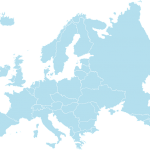Search engine optimisation includes making content on the internet so search engines such as Google position it highly when people search for something specific. Yet, SEO doesn`t just concentrate on keywords; it involves more than that.
Keywords
Keywords are at the core of every effective site optimisation campaign. Search engines use them to know your content and match customer intent, while keywords can also provide opportunities for client acquisition. Using them accurately would also aid prevent expensive errors that lead to lost traffic, and employing SEO Adelaide specialists is of excellent help.
A successful marketing approach begins with correct researching keywords. Analysing keywords could expose competitors` tactics and what customers are looking for; other than providing awareness of the competition, researching keywords also updates topics written about on websites and blogs – this is important as your target clients may search using several terms when looking for same issues.
As an example, a football fan with a profound interest would likely search for “football,” whereas those more casual might look up things like “FIFA” or “football playoffs.” By knowing these differences and making content to meet them fittingly, your content has a greater opportunity of appearing at the foremost of Google search.
Not only should you recognise the phrases your target customer uses, but also how often. Different tools, like the Google AdWords Keyword Planner, can give this data and let you to determine terms and average monthly search volumes; furthermore, this tool will permit you to determine related words or terms.
Selecting key phrases for your content is vital to optimising search engine optimisation (SEO). Search engines evaluate many factors when ranking web pages, like relevancy, frequency and authority – selecting inappropriate key phrases could have severe impacts for search engine optimisation: you could face consequences or even have it withdrawn from search engine result pages altogether.
When selecting terms, using both head and long-tail phrases is important. Head key phrases tend to have better search volumes but can be more competitive, whereas long-tail ones produce more specific target. They also are more likely to switch into sales.
After determining proper terms, they should be integrated naturally into your content. They must occur in places such as title tags, headings as well as meta descriptions – or they could even show in the scope where relevant to the topic. So, hiring Augmentum Melbourne SEO professionals is useful if you are unaware about it.
Content
Content is at the heart of SEO because it helps people to know your business and understand more about its offerings. Moreover, superior, targeted, SEO-optimised content adapted to meet clients` needs can boost Google rankings – meaning many people see and take part with it! Content might take the form of blogs, videos, web pages or business listings; doing excellent, targeted, EAT-friendly, and SEO-optimised material will result in better Google Search rankings for your goods or services.
While key phrases initiate traffic and positions on SERPs, the condition of your content defines its relevancy and authority in search engines. That is the reason it is extremely essential to follow an E-A-T framework when enhancing content – this stands for expertise, authority as well as trustworthiness and helps search engines agree whether your website is related for an individual query.
Optimising content includes making small tweaks to a website to enhance its ranking in organic searches. While these adjustments might seem irrelevant, they could make an impactful statement about your site to search engines. Once done, conduct a keyword research to know what phrases or terms your target client uses to search goods or services like yours – once complete, you can start creating boosted content!
Writing a new page must excel as unique and related to your target keyword. The title tag serves as a crucial marker of the page`s focus this link appears as blue on SERPs. Meta-title as well as meta-description also help search engines comprehend what this site is about, as do picture file names as well as ALT tags.
Constant updates to your web content are crucial, as search engines favour websites with updated material over those that haven`t been updated of late. Hence, every six months, it is a good idea to review existing content and erase duplicate pages which baffle search engines and so have an negative impact on the ranking of your site. An SEO professional could assist you with this.
Link Building
Building Links is a important aspect of website optimisation and one of the fundamental factors in determining a website`s SERP rankings. The more superior links a website has, the better it would rank in Google searches.
Link Building requires reliable effort over an extended period but can extremely affect website success when accomplished right.
Sites with high rankings on Google Search typically get the most traffic for any query, making search engine optimisation vital to growing and expanding business You can utilise various tactics to enhance website optimisation for your website if you desire to rise visitors and grow return, including improving its structure and increasing quality inbound links; additionally, you could concentrate on researching keywords and internal linking ttactics.
To raise site optimisation of a website page, the primary step should be improving the metadata accompanying with that webpage – including title as well as description metadata. Title metadata serves as the webpage title in browsers, while description metadata shows under it in Google search results as brief textual descriptions.
Step two is optimising the content of a page. This involves adding targeted terms, increasing relevancy for exact search terms, and selecting related anchor text related to its subject matter (for instance, “click here” is the inappropriate anchor text for an internal link as it doesn`t tell Google anything about its subject matter).
SEO optimisation includes several vital responsibilities for success, such as developing an XML sitemap and turning all pages accessible from the homepage. A webmaster can optimise a site`s architecture by interlinking all relevant pages using keyword phrases as linking text. On-page optimisation makes them to enhance web pages without losing control over search engine optimisation results; its impact can be immense.
Analytics
Successful SEO involves an deep understanding of how search engine users behave, which can then be applied to improve the content, improve page titles and meta tags, increase keyword usage on sites. Thus, it is ideal to hire an SEO consultant.
Analytics tools like Google Analytics give valuable measurements of the credibility of SEO drives; for example, they permit you to track search engine visits to your site and how people relate with it and identify underperforming pages so you could make adjustments that raise their visibility.
VariousMany factors, counting user intent and locality, determine search engine result pages. This data assists Google give the most related results for every query- for instance, someone searching for “football” in London will get different outcomes than someone looking in New Hampshire; besides Google considers previous queries, settings preferences as well as the personalisation to generate related Google search results.
SEO could help your site rank higher on SERPs and initiate more organic traffic, but it must be remembered that site optimisation is an continuing process and will take time for outcomes to become probable. Thus, for the best outcomes from your efforts, a holistic strategy including link building, content marketing and social media marketing must be used; this will enable utmost efficacy from your actions.
To improve website optimisation, you ought to determine which metrics will generate the most helpful insight. One such metric would be Google Search Console (GSC). You can make use of GSC to track how your web pages rank for terms and monitor conversions with GSC to be aware of how many people have converted to sales or leads.
Another metric you ought to examine is your mean Click Through Rate (CTR), which can be acquired in Search Console by changing between position and average CTR metrics. Instead, positions on SERPs gives a free tool that measures search visibility on phone and desktop search engines for a particular region and period.





